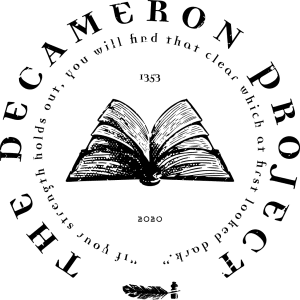After sunset my reflection appears in the black depths of the kitchen window, thin, pale and drunk. The ruins of the gas station are burning in the hills, a sheet of wet gold floating on my chest. I can pick out the familiar scent of smoke. My eyebrows are dark, straight, and frowning, my lips black with the dry, expensive wine I’ve spent these last four hours sipping from a plastic cup. I can almost see Michael in the angles of my face, tipping back of my heavy-legged chair, my nervous fingers crumpling the thin red plastic, fingernails black with grease.
I buried my sister three days ago. There’s some space on the side of the gas station where the ground is still soft. Back when Alice and I were little, back before the world ended, we used to bike up the hill to that gas station and spend all of our pocket change on candy bars and toy soldiers. If I came alone, the woman behind the counter would give me a stick of gum for free, to take back home to Alice. When she was killed I came to a realization. I don’t know how to be alone. I don’t know how to fill the deserted parts of my life. I don’t know how to go nowhere and bring nothing back to no one.
The gas station explodes, a light so bright it’s almost blue. I let the front legs of my chair settle on the kitchen linoleum with a weighty rumble. My limbs creak as I totter towards the sink and refill my cup from a coffee pot that hasn’t held coffee in weeks. I don’t remember the taste of the beverage, only its smell, sharp and bittersweet. The wind is blowing from the west, thick with burning gasoline. I am drunk enough not to care, but not too drunk to notice. I wipe my cheeks with the back of my hand. My tears taste like a miracle, water into wine. They told us not to be afraid. I saw all the videos, back when the television still worked. The forest of microphones in journalists’ manicured hands nearly obscured the angels’ burnished shapes: pristine, pure, wheels within wheels. And everywhere eyes, black, polished and deep. The instruments were unnecessary. We could hear their voices in our heads, they were singing and sad. It has been a long time since I had seen anyone. Ten months, maybe more. I tell myself the absence of people doesn’t frighten me. They were never good for anything, not for bringing rain or drying flooded fields; not for calming hurricanes or bar fights; not for curing cancer or alcoholism or the broken ribs that ripped my sister’s lungs. People couldn’t make the trains run. At the end of everything, all they did was destroy.
I knew a boy who did that. He was the one who killed my sister. His name was Luce, and he lived above the post office on Twenty-First and Chebar, where the street is always flooded and the train tracks run through the river slime. Alice never listened when people told her Luce was a junkie, but I believed it. I believed it ever since I saw the black and yellow mess that olive-eyed man made of my sister’s face. Everyone fights dirty at the end of the world, but the further you’ve fallen, the dirtier you fight.
The fire has spread to the dry grass, burning with grease-black smoke. My reflection in the coffee pot is Alice’s broken face. I don’t know how it all started, how they met each other, how they found themselves in that alley with the dumpsters and the broken-down postal truck, both of them drunk and angry as dogs. I don’t know what Alice said to make Luce snap, or if it was her who snapped first, who threw the first punch, who knocked Luce’s dark head against the brick wall and crumpled like a tin can when Luce lashed back. The kid landed a kick or two in the wrong places. Or the right places. It depends on whether you think he really wanted to hurt my sister.
My eyes are sunken into two black pits, like a skull, like the broken blood vessels in a drunkard man’s brain. I don’t know what to think. Yesterday afternoon I went down to the post office with a switchblade in my pocket and a potful of wine sitting sour in my gut. I pried the doors apart and crept across the lobby with its displays of yellow envelopes and postage stamps, hungrily smelling the dusty glue scent that was in my sister’s nostrils when she died. Then I reached the door to the back room and another aroma overtook me, sour as vomit. Luce was spread out on his bare mattress, his dark hair matted with blood from a scalp wound that had gone too long without stitches. His green eyes stared up at the ceiling, dull as plastic. I saw the empty bottle on the floor, the thin reddish line like a tear streak from the corner of his mouth. I stepped back into the lobby and vomited over a display of Holy Virgin Christmas stamps, faded and cherubic.
Alice used to spend her evenings down at the freight yard with a few cans of spray paint, ornamenting the black and red and yellow corpses of trains. The air was always thick and foul-smelling so close to the river, but Alice didn’t care. She could spend hours on each car, brightening the colors, smoothing the contours of her work until your heart would ache from the beauty of it. She painted grotesque demons and graceful angels with stark white pairs of wings. And everything she painted, every sweep of the spray can across the freight car’s rusty skin became a living thing, struggling to free itself, struggling to run.
We were a family of runners. Alice chased trains. I chased angels. A few weeks ago, Alice found a poster near a dumpster, a fairy tale about a safe place, a place where people could rest and relax, live out the last of their days in peace. The pictures showed women in dresses on thick plush seats, crystal dining rooms with waiters in red suits, doors with brass handles and windows covered in velvet. My sister swore it was all true. So I took a crowbar to one of her masterpieces and showed her what was really inside: cans of baked beans and chewing tobacco and shaving cream, reams of unlined paper, naked logs with their knotted bark faces stripped away. A naked picture of a bleak reality. Wordlessly, she rolled the door back into place, and never let anyone open one of her train cars again. We never did find another living human being together. At night, she would whisper across our tiny bedroom of what it would be like, inside of a train, what with the woody smoke, the screech of the barred wheels, the weight of it all bearing down on us like a pack of wolves. Would it speak to us, like the angels? Would it be able to do the things the angels couldn’t?
Without my sister, I am nothing. A freight car without its engine, an angel without its voice. Alice mapped the rails around the county, the strands of rusted iron and wooden ties gone spongy with rain, and we would bike them for hours. Out into the fields that farmers still tended, the knee-high corn and chest-high barley, the thistles thick around our ankles. Sometimes farther. Once, we parked our bikes and crossed a bridge over a valley so old and far from anywhere that it had no name, and the river wound like a thread of glass a dozen yards below us. The wooden ties bounced and bucked beneath our feet. We came home tired and breathless, but we did not find a single person. I thought I heard one once. Only once. Perhaps it was a dream. The lonely piercing sound in the night, twin shrieks of pain and of warning. Alone, alone, it seemed to say. Stay away from me. As if it knew how dangerous it was. I think of Luce, of what he knew or didn’t know about himself as he lay bleeding on that bare mattress.
I shudder in my narrow, cold-sheeted bed, haunted by thoughts of the past. The last one I saw was at a gas station outside a little town called Fourth Lake. All the convenience store’s windows were boarded over with plywood, but some enterprising locals had busted through, and you could see the cigarette boxes and plastic milk cartons and candy wrappers crumpled on the floor. The man sat beneath the canopy of pump nine, bright as an emerald, with huge black eyes. “I am looking for my brother,” it sang in its high, brittle voice. I was surprised to hear it speak, surprised to feel the familiar swell of its words in my temples and my lungs. “Can you tell me where my brother has gone?” I shook my head, my mouth as dry as salt. It shook its head back, a strangely human gesture. I thought perhaps it hadn’t understood me. Then I remembered where I had seen people long ago and pointed east across the flooded corn fields, where the knotted ruins of barns and skeletal tractors stood silent, east towards the horizon that the city was no longer tall enough to break. Though its huge eyes followed my pointing finger, it’s questions still rang in my head. “I am looking for my brother. Can you tell me where my brother has gone?” Perhaps it was repeating a prayer. Perhaps someone’s sibling had crawled to it for help, and all it could do was talk.
When I passed by again two weeks later, the thing was gone, and pump nine had grown over with purple clematis. Two weeks after that, a group of men in Fourth Lake murdered another guy. All of them gathered in the high school gym, one with a video camera, to send it in to the news stations just before the cable news went out. The poor thing was terrified, you could see it in the way his face contorted with fear, a pleading innocence in his eyes. The men kicked and kicked, and the sound echoed, sharp and hollow. I wonder if it was anything like that, when Alice died. When I’m sober, I wonder why a man would kill another man, but when I’m drunk, I know. I want to know, always.
It’s started to rain. I wonder if it will rain enough to extinguish a burning gas station. I find myself praying that it will, then stop and wonder why I care. All the people in the town are dead. They were dead for a long time before they stopped running the videos. I don’t know when exactly I figured it out. Maybe when I realized that the jewel-colored eyes on the television screen never blinked, and you could hear the clicks where the voice recordings stopped and started. After a while, you could hear the voices as well: in your ears, not in your head. I don’t know what they did with all the bodies. Buried them, like Alice in her shallow grave? Or left them there like the trains, stalled on the tracks, waiting to run again?
The fire is dimming somewhat, and my reflection is in the window again. The picture staring back at me is familiar. It’s what Alice looked like when she died: terrified and sad. There was a girl down at the freight yard this morning. She says her name is Remember and she laughs too much, but her laugh is bright and cool as water. She’s good with a spray can, almost as good as Alice. She smells like paint, like metal and sweat and grease. “What are you doing here?” She asked. She gave me a beer from a cooler in one of the cars and we sat in the open loading door, swinging our legs over the side, over the weed-grown gravel and rusted steel of the track. I didn’t know how to explain it to her. I shielded my eyes with my hand and glanced around the yard: searching. I tapped the car beneath our legs: train. Then I reached down for one of the weeds, a long, thick one with purple flowers: alive. It took her a moment, then she started laughing. “Trains aren’t alive,” she said. “They’re made of metal. Like cars and bikes. They stopped moving because people stopped running them.” I shook my head and bumped my leg against hers, just to feel the heat of the clean denim, the hardness of muscle underneath, another human. I pointed to one of Alice’s pictures on the train across from us. It was an angel, metal and gemstone and very much alive. Remember took a swig of pale, sour beer. “I don’t believe in angels,” she said.
In my dreams, I tell Alice not to go to Luce. Over and over again, heedless of the circumstances, the futility. We are crossing the railway bridge high above the valley, stepping from one fragile rain-rotted tie to the next, and I catch her arm as she stumbles. I hold her tightly to my chest, begging her not to leave me tonight. Knowing this is a nightmare, knowing it will do no good. She pushes me back. “You worry too much,” she says. I hear her voice in my head, in my chest. “Let go,” she says, because this is a nightmare. She strikes me again, and I fall, jolting back to reality.
“I’m looking for a train, too,” Remember told me. She lifted her eyes to the red and rusty sky, like she could see it in the distance, headlights shining like stars. “I mean, I have to look for something, right? So I’m looking for a train that runs.” I pointed to myself, then to Alice’s picture again: I’m looking for an angel too. She wasn’t paying attention. She crumpled her beer can in her fist and flung it out of the car, out amid the sleeping freight, the canvases of Alice’s dreams. It rolled to a stop beneath the pair of ebony wings. “I’m going to walk every track in the world until I find one,” Remember said. I cupped my hand around my ear, lowered my eyelids, still pointing to the painted wings. Listening. Listening for an angel. Understanding somehow, Remember looked at me.
“What do you think an angel’s voice sounds like?” I reached out and brushed her cheek with the back of my hand. Her skin was damp and startlingly soft, like a rotting thing, heartbreakingly sweet. I pointed to the train. The smoke is still stinging my eyes. I watch the flames die in the rain-streaked window and I know that somewhere along the line I must have realized that the world has gone crazy. Somewhere, sometime, my foot touched a wooden tie on the train tracks and it didn’t bounce quite right. One of angel’s hundred eyes went a second too long without blinking. Alice is dead. Remember is right, and the trains were never more than boxes of tobacco and lumber, and nothing I say or try to say can make a difference.The flames die, and there is my reflection in the window, and I look so much like Alice that I wonder if I’m dreaming. Or rather hope. From the west, there’s the sound of a train whistle, it doesn’t get louder, softly humming. It’s terrifying and sad and infinitely far away. Never to be seen.





